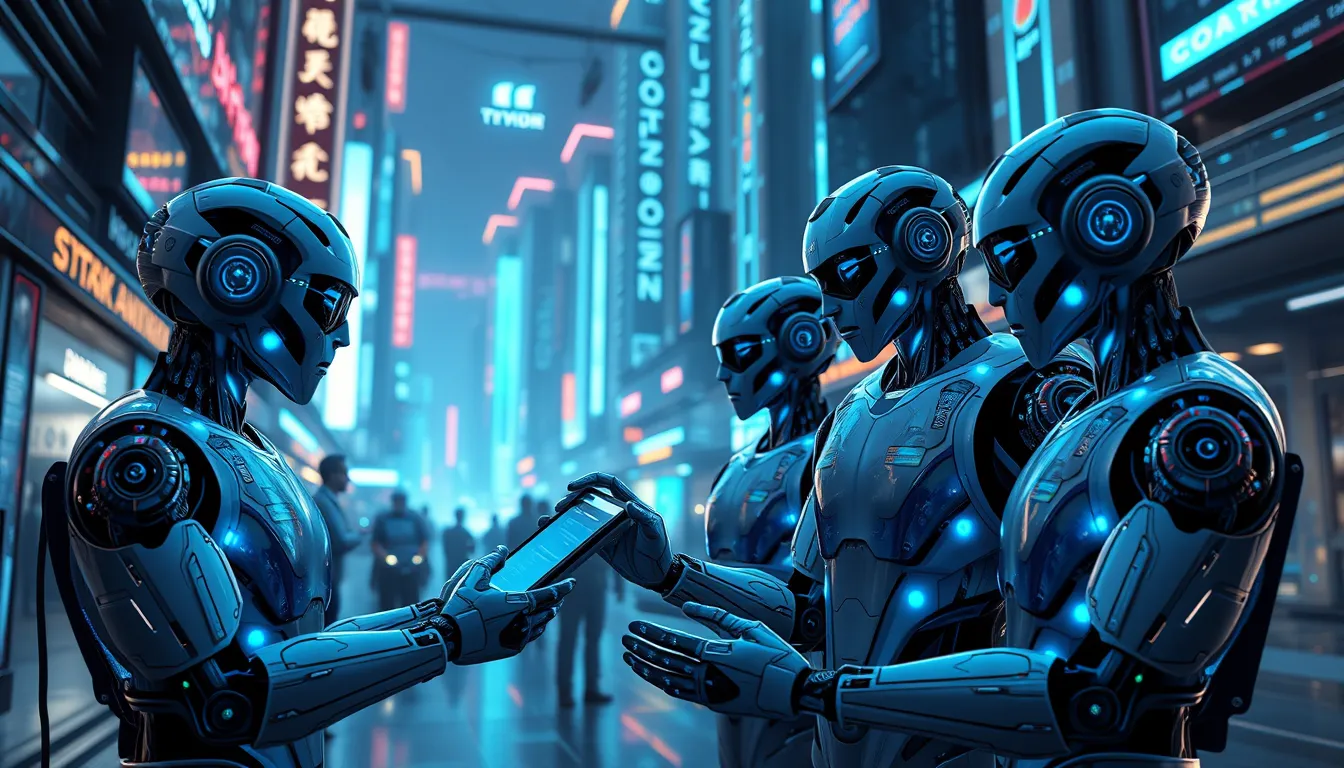Now Reading: Empowering the Future: AI Agents Redefining Digital Innovation
-
01
Empowering the Future: AI Agents Redefining Digital Innovation
Empowering the Future: AI Agents Redefining Digital Innovation

Empowering the Future: AI Agents Redefining Digital Innovation
Introduction
In today’s rapidly evolving digital era, the concept of AI agents digital transformation is not just a futuristic notion—it is actively reshaping how we interact with technology. With leading voices like the CEO of Perplexity advocating for AI-driven change, it’s clear that the integration of AI agents is set to revolutionize digital innovation. This article explores the evolution, role, and impact of these agents on modern digital landscapes, offering insights into the future of digital interaction.
Understanding the Evolution of AI Agents
Artificial intelligence, together with breakthroughs in machine learning and natural language processing, has given rise to intelligent digital assistants that go far beyond simple task automation. Initially designed to process data and retrieve basic information, AI agents are now paving the way for complete digital transformation. The focus on AI agents digital transformation is evident in how these assistants integrate into everyday online activities, streamline workflows, and enhance user experiences.
The Role of AI Agents in the Digital Landscape
One of the most compelling aspects of AI agents is their ability to adapt to various domains. Consider the following benefits:
- Seamless Integration: AI agents digital transformation enables companies to embed intelligent assistants into customer interfaces, improving overall usability.
- Enhanced Data Processing: Utilizing advanced algorithms, these agents can collect, analyze, and present data in real time, making digital interactions more efficient.
- Personalized User Experience: By leveraging machine learning and natural language processing, AI digital assistants tailor interactions to individual user needs.
In essence, the role of AI agents in the digital landscape extends beyond routine functions. They are becoming essential in managing complex queries, personalizing content, and acting as vital intermediaries between users and digital platforms.
Impact of AI Agents on User Experience
The impact of AI agents on user experience is both profound and measurable. As digital innovation accelerates, users are increasingly expecting smarter, more intuitive interaction methods. AI agents digital transformation has the potential to:
- Reduce Transaction Friction: By automating routine tasks, users can carry out transactions faster and with fewer errors.
- Enhance Customer Support: Intelligent agents can provide instant responses to common queries, ensuring timely assistance.
- Offer Customized Solutions: Through detailed data analysis, AI agents deliver personalized recommendations, making interactions more meaningful.
These advancements contribute to a digital ecosystem where efficiency and personalization drive engagement, setting new standards for what users can expect from online platforms.
Incorporating Machine Learning and Natural Language Processing
At the core of AI agents digital transformation lie two critical technologies: machine learning and natural language processing. Machine learning algorithms empower these agents to learn from vast amounts of data, while natural language processing ensures that interactions are human-like and engaging. Furthermore, by integrating secondary keywords such as AI digital assistants and digital transformation, companies are able to create richer digital experiences that cater to diverse user needs. For more detailed information on machine learning, visit this resource.
Looking Towards the Future of AI-Driven Digital Interaction
The future of AI-driven digital interaction hinges on continuous innovation and adaptation. Key long-tail phrases like “role of AI agents in digital landscape” and “impact of AI agents on user experience” highlight niche aspects that are critical for capturing evolving search intents. As organizations invest heavily in AI research, the focus is shifting towards developing more responsive, intuitive, and integrated digital solutions.
Moreover, strategic investments in AI agents digital transformation are already driving significant changes in sectors as diverse as customer service, online commerce, education, and healthcare. By enabling a more interactive web experience, these agents not only streamline complex operations but also usher in a new era of digital personalization and efficiency.
Conclusion
In conclusion, the era of AI agents digital transformation is upon us, marking a monumental shift in digital innovation. With intelligent digital assistants transforming how businesses operate and users interact online, the potential for enhanced efficiency and personalized experiences is limitless. As we move forward, embracing these technologies will be key to staying competitive in an increasingly digital world. The visionary insights from industry leaders like the CEO of Perplexity reinforce that the future is bright for AI-driven digital innovation. Companies that leverage these advancements will not only redefine user engagement but also set new benchmarks for operational excellence in the digital age.
By integrating AI digital assistants and utilizing robust technologies like machine learning and natural language processing, organizations can truly harness the power of AI agents digital transformation. This ongoing revolution promises to enhance every facet of digital interaction, driving unparalleled improvements in both user experience and business performance.
In summary, embracing AI agents digital transformation signifies a bold step towards a more advanced, efficient, and user-centric digital landscape, ensuring that the future of online interaction is as dynamic and innovative as the technology behind it.

























